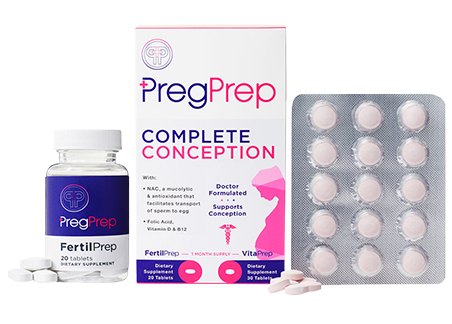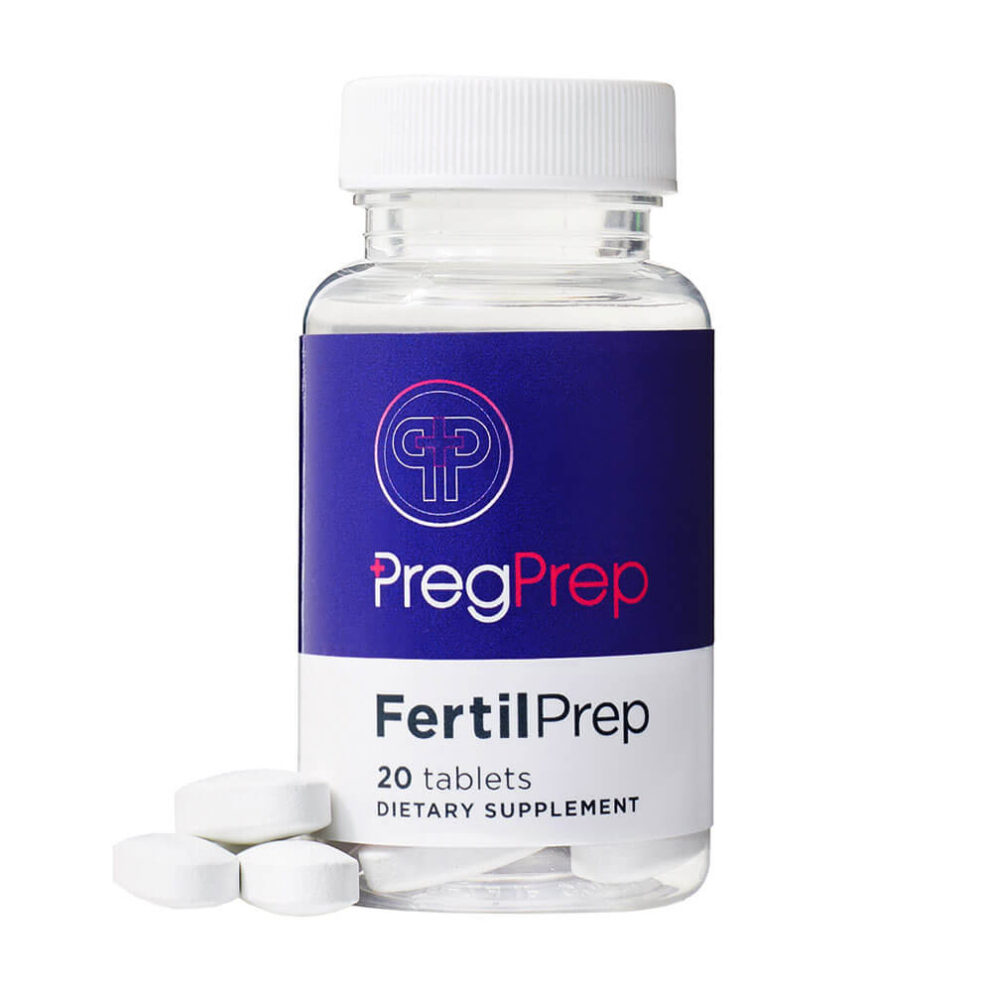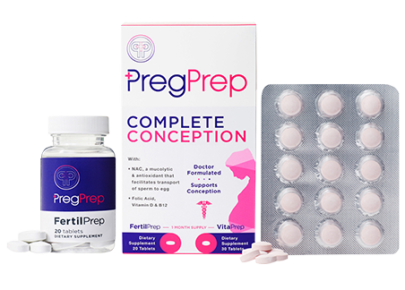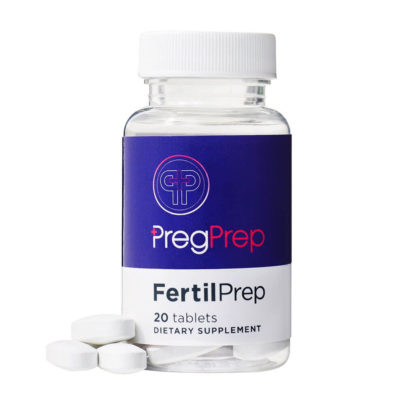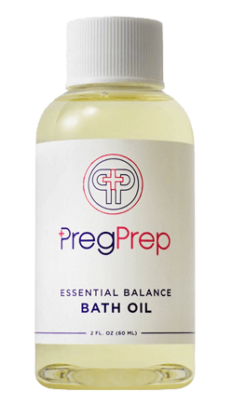The path to pregnancy isn’t always a smooth one. The process of trying, hoping, and wishing — only to get your period yet again every month — can be frustrating at its best, and heartbreaking at its worst. And when getting pregnant proves to be more complicated and time-consuming than it seems in the movies (and generally, it always is), women don’t have many options: You either keep trying month after month, or you spend tens of thousands of dollars on doctors appointments and fertility treatments… until now.
Dr. Lara Oboler, a cardiologist turned fertility specialist, recently discovered a sweet spot of fertility support; a middle ground between trying to get pregnant and paying to get pregnant. She describes her method, PregPrep, as a “proactive fertility treatment,” and she knows it works. How? Because it’s exactly what helped her get pregnant at 35… and again at 40.
“I wanted to wait to have children until I was actually a partner in a practice,” Dr. Oboler explains to Nécessité.
“I didn’t start trying to have children until I was 34 years old. I assumed I would just have sex, get pregnant, and have a baby. It didn’t quite work out that way.”
“After a few months of trying, I started getting nervous,” she says. “Five months went by, I was about to turn 35, and I thought, I better be a little more proactive.” She made an appointment to see a fertility specialist.
In the month leading up to her appointment, Dr. Oboler read a book that mentioned an alternative method to boost fertility: drinking cough syrup. “The premise was this: If you take certain types of cough syrups that break up mucus — the congestion in your lungs — it actually breaks up mucus all over the body,” she says. “The main barrier between a sperm and an egg is cervical mucus. If that substance is thick or sticky, that sperm could have trouble getting to the egg.” It wasn’t something that was taught in medical school, but she thought, Why not? “I went out and got the cough syrup, took it, and a couple weeks later I went to the fertility specialist.”
As the specialist was talking to Dr. Oboler and her husband about the various tests, treatments, and procedures to schedule, someone from the office burst through the door. “They said, ‘Stop everything — you’re pregnant!’” the doctor remembers. The fertility specialist asked if she had taken a mucolytic. Bingo.
“I thought, I’m a doctor and I’m a woman trying to get pregnant and I did not know about this — I was about to go down this whole road of fertility treatments,” Dr. Oboler tells Nécessité. “The lightbulb went off, and I did a lot more research on this specific way of helping yourself get pregnant.”
The main mucolytic — aka, the ingredient that breaks up mucus — in cough syrup is N-acetylcysteine; it later became the main ingredient in Dr. Oboler’s groundbreaking PregPrep product, FertilPrep. So what makes FertilPrep different from, say, swigging down some over-the-counter cough syrup?
“The cough syrup is actually not as safe,” Dr. Oboler explains. “In terms of pregnancy, if you get pregnant while taking cough syrup, it’s a ‘Category C,’ which means it might do harm [to the pregnancy].” N-acetylcysteine is classified as Category B, which means it most likely won’t do harm if you take it while pregnant. “The second thing is, there’s an actual dosage to take, a timing of the dose, and a duration of days you take it,” the doctor says. “It’s a more thought-out way of taking it that makes sense, instead of buying random cough syrup.”
If you’re wondering why you haven’t heard about this mucolytic method before, it basically comes down to politics and capitalism. “There’s almost a political battle,” Dr. Oboler explains. “If you’re a fertility specialist, you kind of want to do your thing. You want to do the procedures, do the test, and do the workups. Take that for what you want.” It makes sense; it’s better for business if patients are beholden to specialists for information — which is part of the reason PregPrep is so revolutionary.
PregPrep offers a handful of accessible, affordable, fertility-supportive products, all available over-the-counter at CVS, Walgreens, and Amazon for under $30 each, no prescription necessary. (Which beats the hell out of that expensive fertility doctor, right?)
Each product works in its own way: There’s FertilPrep, which is taken twice a day every day; and there’s the Complete Conception Kit, which includes a prenatal vitamin and is designed to be used five days before ovulation.
As Dr. Oboler explains, timing is everything when it comes to getting pregnant. (Well, timing and thin cervical mucus.) “You need to take this before ovulation, not after,” she says. Because sperm can live for two to five days and eggs only have a life span of 12 – 24 hours once they’ve been released, she recommends you “have sex for the five days leading up to ovulation, and that’s when we recommend taking FertilPrep,” Dr. Oboler says. This ensures that the sperm is ready and waiting and the cervical mucus is sufficiently thinned by the time you’re ovulating. “The key is to start before ovulation,” she stresses.
Of course, it’s not always easy to know when you’re ovulating. “A neat trick is if you know what your cycle length is — the amount of time from the first day of your period to the first day of your next period,” Dr. Oboler tells us. “Some people have a 28 day cycle, some people have 26. But if you have a regular cycle length and you know what that is, you take that number and subtract 14 — that’s when you’re ovulating.” So, if you have a 28 day cycle, you’d be ovulating on day 12 (and starting FertilPrep on day seven).
The doctor admits that it’s a little trickier if you don’t have regular periods. She recommends taking your temperature with a device like Daysy or using an ovulation kit to track your cycle and determine ovulation.
Dr. Oboler is eager to note that FertilPrep does not treat infertility. “It’s for fertility — it kickstarts conception and urges it along,” she explains. If you’ve been trying for a year or more and can’t get pregnant, there’s likely a larger issue at play than thick cervical mucus, and it’s time to seek infertility treatment from a specialist.
That being said, the internet is chock-full of hundreds of “#PregPrepBabies” whose parents credit PregPrep for their miracle pregnancies. “I tried your products even when all odds were against me and got a positive pregnancy test,” one particularly heartwarming review reads. “After trying to conceive for a while, we decided to give PregPrep a try. We bought the Complete Conception Kit in August and got pregnant at the end of the month,” says another.
Although the doctor’s days of taking PregPrep for herself are over — she has three children now, all conceived with help from the groundbreaking mucolytic — that’s not where her drive to provide people with accessible medical care ends.
“I started getting doctors asking me to help them, since a lot of doctors have great ideas but aren’t great business people,” she tells Nécessité. “They wanted to know how to get ideas from their head to shelves, like I got PregPrep into Walgreens and CVS.” That sparked inspiration for Dr. Oboler’s next venture, a company called MD Concepts that vets ideas from other doctors and brings them to market.
With fertility covered, the next frontier for MD Concepts is men’s sexual wellness. “Two years ago, Dr. Jacob Rajfer came to me and said, ‘I have a natural supplement that can be used to help erectile function,’” Dr. Oboler explains. “It’s not an on-demand supplement [like Viagra], but if you take it every day, in a month you notice a difference.” The product is called Revactin and will be available soon.
It’s surely just the first in a long string of life-changing medical innovations that Dr. Oboler and MD Concepts will help bring to the masses.
Photographer credit: Jason Hall

















